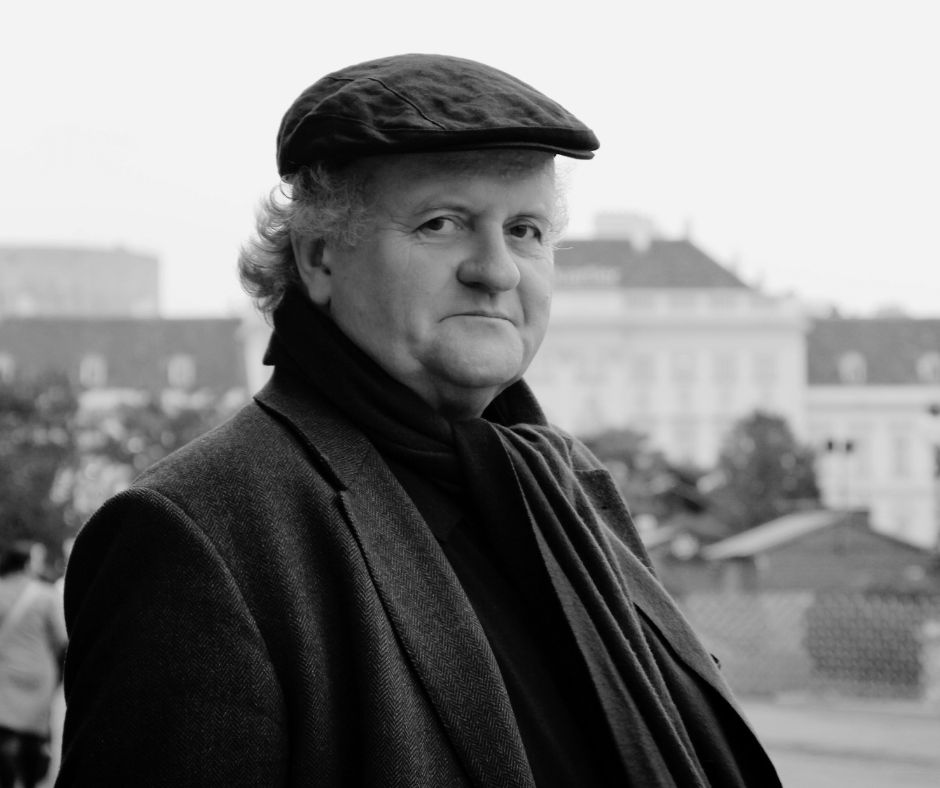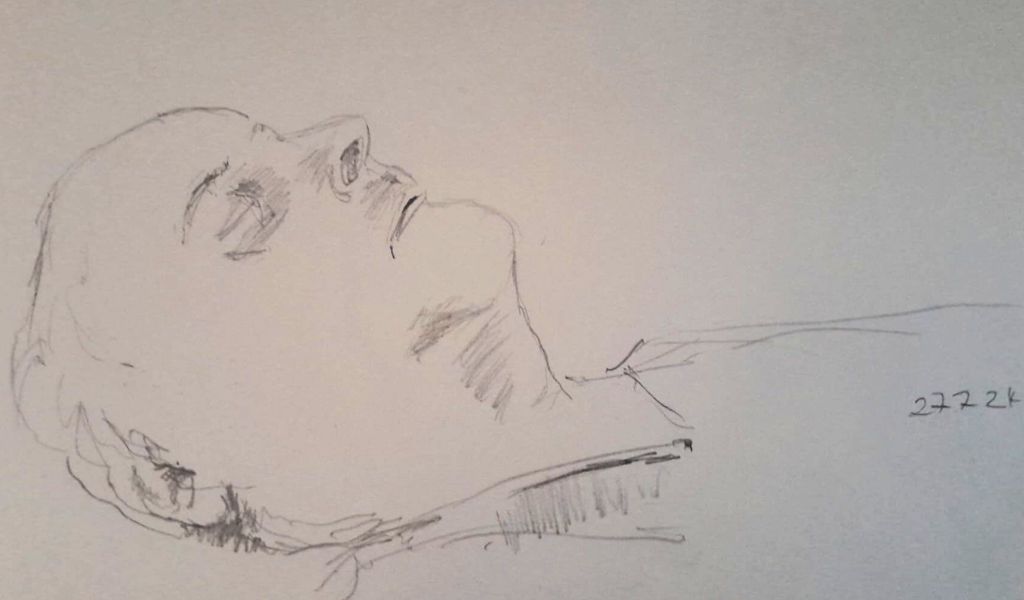
Mourning for Wolfgang Rihm

Mourning for Wolfgang Rihm
Universal Edition mourns the death of Wolfgang Rihm
With Wolfgang Rihm, the music world loses not only a gifted composer, but also a universal scholar, who was as concerned with the promotion of young talent as he was about his personal commitment to cultural policy.
Music resembles life, is a reflection of its processes.
(Wolfgang Rihm)
Born in Karlsruhe in 1952, Wolfgang Rihm became involved with painting, literature and music at an early age. He began to compose at the young age of 11 and studied with Eugen Werner Velte at the Karlsruhe Academy of Music from 1968 to 1972 while still at school. Here he intensively studied the music of Arnold Schoenberg and Anton Webern, and at the same time as he graduated from high school, he also completed his studies in composition and music theory. Further studies from 1972 onwards led him to Karlheinz Stockhausen in Cologne and to the Hochschule für Musik in Freiburg, where he studied composition with Klaus Huber and musicology with Hans Heinrich Eggebrecht from 1973 to 1977. This was followed by his own teaching activities in Karlsruhe, at the Munich Academy of Music and, from 1978, at the Darmstadt Summer Courses, which he himself had attended regularly since 1970. In 1985 Rihm took over the professorship for composition at the Karlsruhe Academy of Music once held by his teacher Eugen Werner Velte.
With his extraordinary talent, Wolfgang Rihm co-wrote recent music history over five decades, always defying ideologies and incorporating current issues into his creative process as well as epochal changes.
He took up the challenge of the most urgent expressive questions that had arisen in the seventies with the end of modernism, and fought with intellectual honesty and courage against the phantom of rational dogmatism and postmodern cynicism. For example, he was one of the first to include the composer Luigi Nono in his teaching starting in the 1990s, and in all his work he strove for a balance between expression and seriousness, which for him constituted the innermost core of true art, as he himself believed. At the same time, Wolfgang Rihm's music always remained rooted in sound as well as rhythmic and harmonic power, with clear formal, often large-scale structures.
The only thing music needs is ears that are truly open.
(Wolfgang Rihm)
Breakthrough at the age of 22
Wolfgang Rihm became known to the general public at the latest with the performance of his orchestral work Morphonie - Sektor IV at the Donaueschinger Musiktage in 1974. The young Rihm reached another milestone with the chamber opera Jakob Lenz in 1977, which was to mark the beginning of his collaboration with Universal Edition.
Among Wolfgang Rihm's most important works are the operas Die Eroberung von Mexico, Die Hamletmaschine, Dionysos, Jakob Lenz, Proserpina and Das Gehege. In the field of orchestral repertoire, the most notable are Verwandlung 1-6, Nähe fern 1-4, Transitus III, his Second Piano Concerto, and the works Ernster Gesang, Gesungene Zeit, or Lichtes Spiel. For smaller ensembles he wrote, among many other works, Jagden und Formen, Séraphin-Sphäre, Fetzen or Mnemosyne.
Music is the present. More precisely: present, which is realized in the moment of its appearance. It is imaginable beforehand only as an inkling and afterwards only as a memory.
Music is when it is. It does not exist alongside it.
(Wolfgang Rihm)
Political Commitment
In addition to his extensive musical oeuvre, which numbers more than 400 works, he made a name for himself through his cultural-political commitment. In 1982 he became a member of the presidium of the German Composers' Association, in 1984 of the German Music Council, in 1985 he became a member of the board of trustees of the Heinrich Strobel Foundation and from 1989 he was one of the members of the GEMA supervisory board. Between 1984 and 1989 he was also co-editor of the music magazine Melos and acted as musical advisor to the Deutsche Oper Berlin (1984-1990) and the Zentrum für Kunst und Medientechnologie Karlsruhe (1990-1993).
Making art always means making oneself vulnerable.
You have to endure that, you have to abandon yourself to it.
To be unassailable, you either have to become a critic or a bank director.
But one must not become an artist.
(Wolfgang Rihm)
Honors
Numerous honors pay tribute to Rihm's musical career. In 1995, for example, the composer portrait of the Rheingau Music Festival was dedicated to him, and in 1998 the Free University of Berlin awarded him an honorary doctorate for his extensive musical and reflective musicological work. In 2001 he received the French order "Officier dans l'Ordre des Arts et des Lettres". In 2003 he was awarded the prestigious Ernst von Siemens Music Prize, in 2010 he received the Golden Bear for his life's work at the Venice Biennale, and in 2012 the Order "Pour le Mérite for Sciences and Arts." In the 2013/2014 season, the Sächsische Staatskapelle Dresden appointed him "Capell-Compositeur", in 2013 he became "Commandeur dans l'ordre des Arts et des Lettres", in 2014 he received the Robert Schumann Prize for Poetry and Music, in 2015 the Medal of Honor of the Province of Salzburg. In 2016 he was entrusted with the artistic direction of the Lucerne Festival Academy, once initiated by Pierre Boulez, and was appointed a member of the "Académie royale des sciences, des lettres et des beaux-arts de Belgique". In 2022, on the occasion of his 70th birthday, he was awarded the Festival Pin with Rubies by Markus Hinterhäuser.
His companions appreciated in Rihm not only his extraordinary musicality, but especially his extensive knowledge: "Rihm is a larger-than-life phenomenon, both in terms of his encyclopedic knowledge and his creative work, which is also encyclopedic, all-encompassing in nature," said Bálint András Varga.
Wolfgang Rihm is one of the most performed contemporary composers in Europe. Until recently, he was Artistic Director of the Lucerne Festival Academy, and in the upcoming 2024/25 season he was also to serve as Composer in Residence of the Berliner Philharmoniker.
The exceptional composer died on the night of 27 July at the age of 72.
Astrid Koblanck, Chairwoman of the Board of Universal Edition on Wolfgang Rihm:
"Wolfgang Rihm will be remembered as a creator of musical works with countless levels of meaning. Personally, I was particularly marked by the wonderful and humorous conversations with this eloquent polymath, who showed a deep interest in his fellow human beings to the very end and was always aware of his own exemplary role as well as his cultural and political responsibility. With Wolfgang Rihm, not only Universal Edition but the entire contemporary music world thus loses an important key figure."

Drawing of the deceased composer by Verena Rihm

